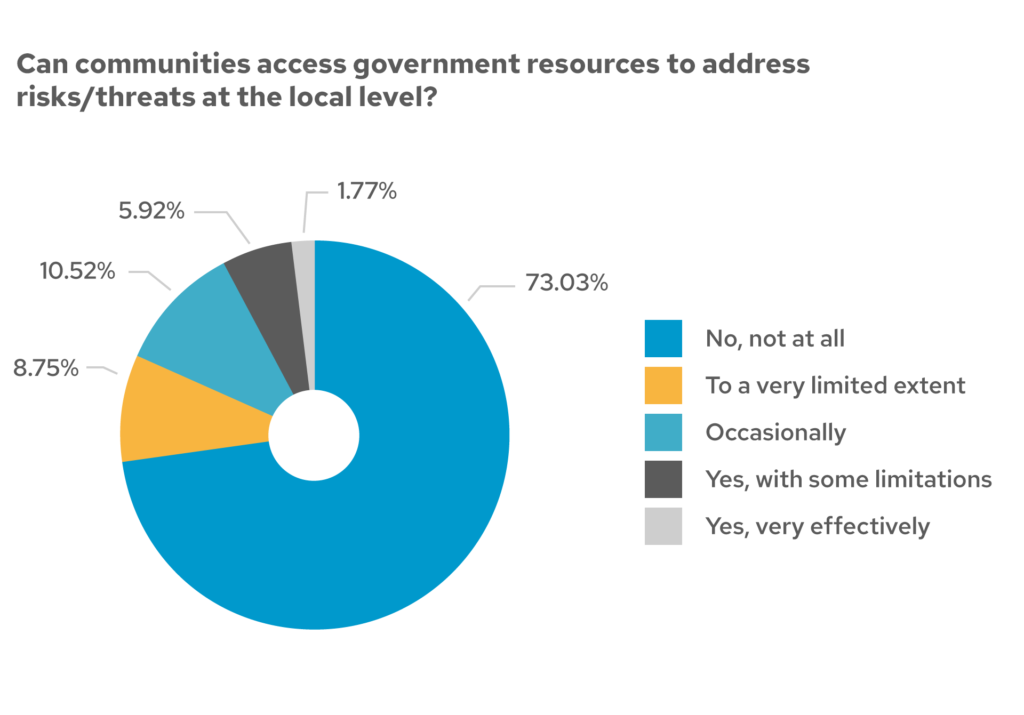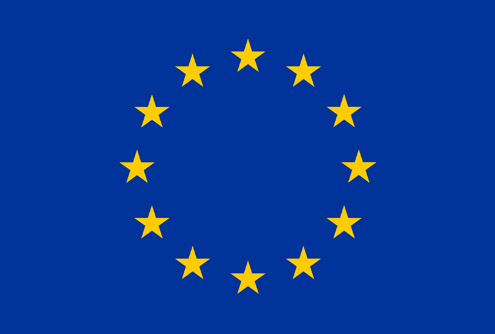VIEWS FROM THE FRONTLINE
Myanmar
We’re working with 15 communities in Myanmar to ensure that development is informed by the perspectives of people most at risk.
As part of our global Views from the Frontline programme we have surveyed community members, civil society organisations and government representatives across the country. Here we present our key findings, conclusions, activities and impact.
Random household surveys
Civil society surveys
Local government surveys
Key findings and conclusions at the national level
- Integrated risk reduction plans that address disasters, climate change, ecosystems and development risks faced by communities need to be developed and adopted at the local level
- Collaboration between government, civil society organisations and communities needs to improve, such that assessment, planning, implementation and monitoring of risk reduction activities are carried out jointly
- Information and the resources of government programmes and projects need to be accessible to communities at the local level

Surveys undertaken in Myanmar
Our Views from the Frontline surveys in Myanmar were undertaken in 2019.
Who was surveyed?
We surveyed 836 random households, 151 civil society organisations, 150 local government representatives, and undertook 74 community consultations.
Risk locations prioritised
We prioritised two risk areas:
- Ayeyarwaddy Region
- Bago Region
Communities surveyed
We surveyed people from 15 communities: Ward (6), Tha Paung Village, Myit Kyo Village, Sar Phyu Su Village, Tha Late Gyi Village, Ward (18), Shan Kwin Village, Hmaw Bi Village, Ma Zinn Ward, Kyun Thar Yar Village, Kathit Kone Village, Ward (2), Vandarpin Village, Ma Mouk Village, Aung Kan Kyaw Village.
Our impact
Activities undertaken in response to community-level findings and conclusions
- Communities prioritised actions to reduce their risks primarily from floods and landslides
- Structural measures were prioritised which included the construction of a jetty, renovation of roads, and digging up water reservoirs
- Other measures included preparing communities to cope with disasters, including landscaping for storm mitigation, and installation of street lamps
Mobilising resources to support local community action
Sar Phyu is synonymous with floods and storms that damage community roads and affect school attendance, access to healthcare, and markets for food.
Lanthit Foundation, a Views from the Frontline partner, responded by providing a sustainable intervention – constructing a higher road surface.
The Sar Phyu community actively participated in the construction. Working in 3 volunteer teams, villagers participated in filling the earth, topping the surface with sand, and reinforcing the road with bricks. Other villagers supported with meals for volunteer labourers who completed construction on 28 Apr, 2022.
Previously, whenever the river water crested over during or after heavy rains, primary school children would be halted from attending school because of the risks associated with flooding, including exposure to waterborne and mosquito borne illnesses such as dengue fever.
Today, the higher road surface offers them safer passage to school. Their parents too can better focus on work-related activities because their children are going to school safely. Additionally, primary school students in Sar Phyu can now transition to a nearby government high school.
The 3720 foot-long road also connects Sar Phyu with Phoe De Kwe village where Sar Phyu community members can easily access a rural health clinic.
Our project partners in Myanmar
Our Views from the Frontline programme is implemented by GNDR member organisations and partners in the country.
National coordinating organisation
- Church World Service
Partner organisations
- Lanthit Foundation
- Ashoka Social Development Association
View all data from Myanmar
You can view all our Views from the Frontline survey data using our data dashboard. You can also learn more about our methodology for selecting at-risk areas and survey respondents.
Project funded by
European Union

Our Views from the Frontline project is funded by the European Union (EU). Content related to this project on our website was made possible by the support of the EU. All content is the sole responsibility of GNDR and does not necessarily reflect the views of the EU.
View their websitePhoto credit
Photo by Alexander Schimmeck on Unsplash.